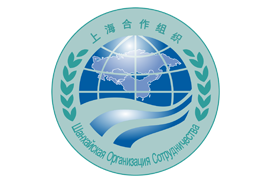The Shanghai Cooperation Organization (SCO) is a regional intergovernmental organization established in 2001, encompassing approximately 60% of the Eurasian area and 40% of the global population, making it the largest regional organization in terms of geographic coverage and population. The SCO comprises eight member states, including China, India, Iran, Kazakhstan, Kyrgyzstan, Pakistan, Russia, Uzbekistan, and Tajikistan, with a combined GDP accounting for around 20% of the world’s GDP. The organization’s main goals are to promote cooperation in politics, security, economics, and culture, with a permanent secretariat in Beijing, China, and affiliated organizations such as the SCO Regional Anti-Terrorist Structure (RATS) and the SCO Business Council.
The SCO’s history can be traced back to the Shanghai Five, established in 1996 by China, Kazakhstan, Kyrgyzstan, Russia, and Tajikistan, focusing on mutual trust in the military sphere in the border area3. Uzbekistan joined the organization in 2001, transforming the Shanghai Five into the SCO, initially focusing on mutual intraregional efforts to curb terrorism, separatism, and extremism in Central Asia3. The SCO Charter, signed in 2002, is a fundamental constituent document outlining the organization’s objectives, principles, structure, and primary areas of activities.
Iran officially became a member of the SCO in 2023, following its observer status since 2005. As a full member, Iran is expected to contribute to the SCO’s goals and activities, particularly in promoting regional security, economic cooperation, and cultural exchange. Iran’s accession to the SCO is significant due to its strategic location, rich resources, and large population, making it an essential player in regional affairs. The SCO also emphasizes economic cooperation among member states, aiming to enhance joint energy projects, including oil and gas exploration, the use of water resources, and funding joint projects through the SCO Interbank Consortium. Cultural cooperation is also a priority, with culture ministers meeting regularly to strengthen cultural exchange among member states.


